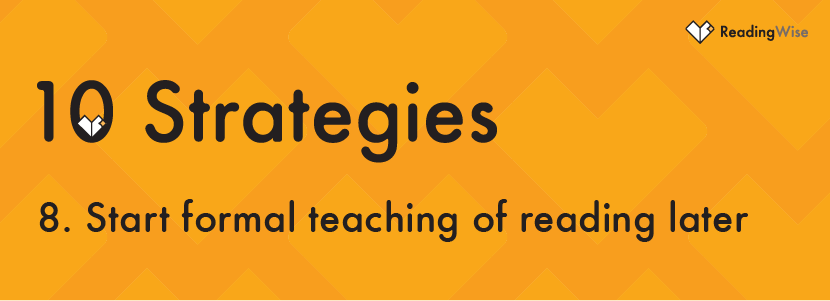
One of the biggest ideas in British education since the turn of the millennium has been investment in the earliest years of a child’s life.
This has come in two forms. Firstly, billions of pounds of new money have been provided to make pre-school education available to all children from the age of three.
Secondly, the New Labour government – whose big idea this was – made a similar investment in providing early intervention and support to help pre-school aged children overcome problems caused by social disadvantage. The aim was to give them a flying start once they commence primary school.
As a consequence, there are now over 3,000 Sure Start children’s centres in England, providing an integrated service for families with children aged nought to five. These centres vary according to local need, but typically include:
- Early education and child care
- Advice and support for parents
- Child and family health services
- Help for parents to find work or training.
This huge investment in early learning and child care is part of an international phenomenon. Throughout the developed world, children are starting some sort of formal education at an ever-younger age.
According to the most recent Education at a Glance figures compiled by the Organisation for Economic Co-operation and Development (OECD), 84% of all four-year-old children in 25 leading countries were enrolled in some form of formal education in 2011. That is 5 percentage points higher than in 2005.
A similar trend is evident among three-year-olds, with more than of half participating in early childhood education throughout the developed world.
In England, all children are now entitled to 15 hours of free early education or child care for 38 weeks a year, starting at the age of three. Some two-year-olds, whose families are on income support or are otherwise disadvantaged, are also eligible.
These changes have had a huge impact on child development in the early years. As we said in a previous blog in this series, effective pre-school education, coupled with early learning activities in the home, can significantly boost a child’s academic performance once they start primary school.
But increased investment in the early years has also brought increased pressure to perform. Both at home and abroad, politicians are demanding greater emphasis on formal learning in the early stages of primary school and, increasingly, in nursery school.
In England, infants are now expected to be taught to read using synthetic phonics and have to take a phonics test at the end of their first year in primary school. The new early-years foundation stage framework, introduced in September 2014, sets out a series of early learning goals that include requiring children to be taught to “use phonic knowledge to decode regular words and read them aloud accurately”.
The fact that children in England now start the formal teaching of literacy generally at the age of four has led to a backlash among early-years practitioners. In a letter published in the Daily Telegraph in September, 2013, around 130 leading academics, teachers, authors and campaigners called for a fundamental reassessment of national policies on early education.
Too much, Too soon
The letter marked the launch of the ‘Too much, Too soon’ campaign, which advocates a delay to the start of formal schooling until the age of six or seven. The campaign points to extensive evidence from educational studies and neuroscience that play-based learning programmes in the early years lead children to achieve more academically, improve their levels of motivation and enhance their well-being as they get older.
Supporters of the Too Much, Too soon campaign are able to point to the fact that, while the compulsory school starting age in the UK (four in Northern Ireland and five in England, Wales and Scotland) is the lowest in Europe, the early onset of formal learning has not resulted in outperformance in international league tables - quite the reverse.
The latest PISA rankings produced by the OECD (2012) placed the UK 23rd out of 65 countries for the reading performance of 15-year-olds, well behind leading European countries such as Finland (5th), Poland (10th) and Estonia (11th), all of which delay the start of formal learning until the age of seven.
Other European countries to outperform us in reading include the Republic of Ireland (7th), the Netherlands (15th), Belgium (16th), Switzerland (17th), Germany (20th) and France (21st), all of which start formal education at six.
Taken together, the academic evidence and PISA scores make a compelling case for starting the formal process of learning to read at a later age. The best time to begin is when a child is ready. For some children that might be when they are four but for many others it means delaying formal learning until they are mature enough at the age of six or even seven.
Next week: Make creative use of technology – Strategy No 9 in our series looks at ways in which schools can make use of interactivity in the classroom to make learning to read more creative and enjoyable









